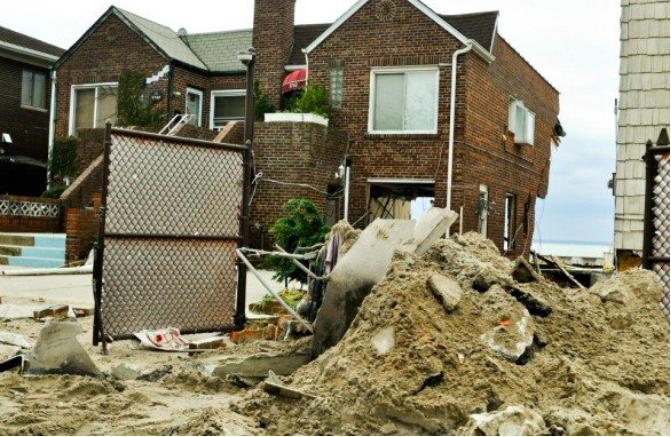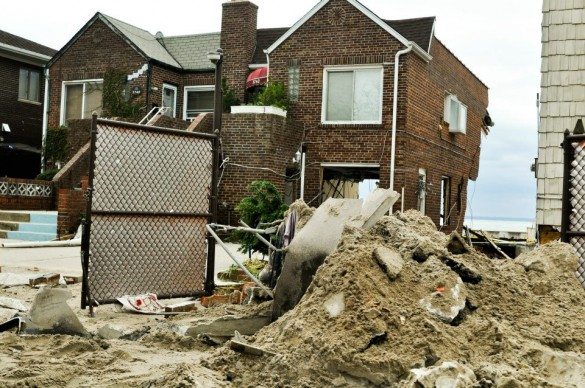Shutdown Halts Rebuilding Together NYC


CONEY ISLAND – Low-income Coney Island homeowners still recovering from Superstorm Sandy are feeling the wrath of what is now the longest U.S. government shutdown in history that started on December 22, 2018.
Rebuilding Together NYC, a Brooklyn-based non-profit, provides free home repairs and accessibility modifications to low-income homeowners, many of whom are Sandy survivors.
To do so, the agency conducts a six-week training program to unemployed New Yorkers interested in the construction industry. Students undergo basic and hands-on training which increases their chances of transitioning into full-time employment.
But just before the holidays, Rebuilding Together NYC’s Interim Executive Director Sarah Desmond was told the funding for the first session of the year would be delayed. Now three weeks into the shutdown, Rebuilding Together NYC will cancel their Jan. 15 training cohort.
“Obviously there is a level of frustration,” said Desmond who joined the company last September. “We had staff in place, we’re paying for instructors [because] we don’t want to lose the qualified staff.”
The federal agency, Housing and Urban Development (HUD) funds the non-profit through a community development block grant. Rebuilding Together NYC gets up to $90,000 per six-week session which usually covers up to 14 students and a 4- to 5-person staff. Based in Gowanus, the agency’s workforce development classes attract NYCHA residents from Red Hook and Coney Island.
Since 2014, Rebuilding Together has rehabbed 154 homes and renovated 52 community centers. They’ve also modified 57 homes for residents who couldn’t afford to make ADA upgrades. Seniors or homeowners living with disabilities scheduled for repair work in Spring must now wait, as will the workforce training applicants.
Incoming students for the Jan. 15 class went through a screening and interview process before learning of the canceled session, some of them putting “their lives on hold,” Desmond said.
But the broader issue is the shutdown delays could derail the program’s schedule and hurt trainee’s chances for future employment. Labor Unions who employ the trainees upon graduation expect to recruit a certain amount of applicants from the non-profit. Anything short could pose as a “hardship” for the organization.
“We had scheduled this class to start in mid-January to coincide with some of the spring direct-entry opportunities,” Desmond said. “Because the class will now start later, those students will miss the benefit of being able to participate in those opportunities because they will not have yet graduated by the time we operate the class.”
Since Dec. 1, 2017, 125 students enrolled in the workforce training program. About 80% were Brooklyn residents with half coming from Coney Island. During the same period, 95 people graduated of which 64 earned construction jobs with an average pay of $19.56. The agency successfully transitions students into labor Unions, including Local 3 IBEW, DC9 and Local 79.
Desmond said participants already confirmed for the Jan. 15 training session have priority for the next available cohort once the program is up and running.
“Every placement that we make results in significant money coming back into the community,” said Desmond. “It’s a shame that people should not have these opportunities,” she added.




